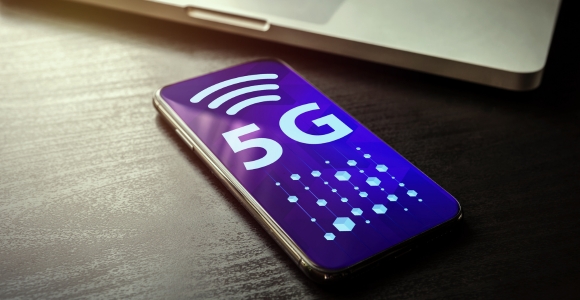The advent of 5G networking is poised to revolutionize enterprise operations, offering unprecedented speeds and connectivity. It promises to enhance productivity, enable innovative business models, and alter the competitive landscape. However, with these advancements come new security challenges and implications that businesses must navigate to leverage 5G’s full potential. In this blog post, we’ll explore both the opportunities presented by 5G networking for enterprises and the security implications that come with it.
5G Networking Enterprise Opportunities
Businesses that implement 5G networking have several new opportunities available to them. These possibilities include but are not limited to increased connectivity, Internet of Things applications, expanded support for innovative technologies and improved customer experiences.
Enhanced Connectivity and Speed
5G networks offer higher speeds and lower latency than their 4G predecessors. This enhanced performance can significantly improve the efficiency of business operations, facilitate real-time data analysis and enable smoother communication and collaboration among employees, partners and customers.
Enabling the Internet of Things (IoT)
With its ability to support a vast number of connected devices simultaneously, 5G can dramatically expand the potential of IoT applications within enterprises. From smart offices that optimize energy use and improve security to logistics and supply chain management that can track goods in real time, the IoT applications powered by 5G can transform numerous business operations.
Supporting Innovative Technologies
5G’s high speed and low latency are crucial for running technologies such as augmented reality (AR) and virtual reality (VR). These technologies have corporate applications in training, design and customer service. Additionally, 5G can enhance the capabilities of artificial intelligence (AI) and machine learning (ML) systems, making them more efficient and effective.
Improved Customer Experiences
The capabilities of 5G networking enable enterprises to deliver new and improved customer experiences. For example, retailers can utilize AR for virtual try-ons, and service providers can offer ultra-high-definition video content. These enhanced experiences can drive customer satisfaction and loyalty.
Security Implications of 5G Networking
While 5G presents numerous opportunities, it also introduces new security challenges that enterprises must address. Some obstacles include increased attack surface, advanced threat vectors, data privacy concerns and network slicing risks. Let’s take a look at how these security implications could cause concern for companies that implement 5G networking without implementing security measures.
Increased Attack Surface
The expansion of IoT and the proliferation of connected devices significantly enlarge the attack surface for cyber threats. Each connected device represents a potential entry point for malicious actors, making it imperative for enterprises to secure these endpoints.
Advanced Threat Vectors
Because the architecture of 5G networks is more software-centric and relies on virtualization, it introduces new vulnerabilities. Attacks like those on the supply chain or through unsecured APIs require enterprises to adopt new security strategies and solutions.
Data Privacy Concerns
With 5G networks enabling the collection and processing of vast amounts of data, enterprises must be vigilant in protecting this information to comply with data privacy regulations and protect sensitive customer and business information.
Network Slicing Risks
5G introduces the concept of network slicing, allowing operators to create multiple virtual networks on a single physical infrastructure. While this can be advantageous for customizing networks for specific needs, it also introduces complexity in securing these individual slices against cross-slice attacks and vulnerabilities.
Navigating the Path Forward
To fully capitalize on the opportunities of 5G while mitigating its security risks, enterprises must adopt a comprehensive and proactive approach to security. This strategy includes implementing robust endpoint security measures, investing in advanced threat detection and response systems, and ensuring compliance with data protection regulations. Moreover, businesses should work closely with 5G service providers to understand the specific security measures already in place and collaborate on developing secure networking solutions.
5G networking holds immense potential for enterprises, offering opportunities to drive innovation, enhance operational efficiency and create captivating customer experiences. However, the security implications of this new technology require diligent attention and action. By balancing the opportunities with the security challenges, enterprises can navigate the 5G landscape confidently and securely, ensuring they remain competitive in the rapidly evolving digital era.
If you would like the benefits of a 5G network without the risks it imposes, connect with Verinext. We will ensure your network is robust and secure.
Related Posts:






